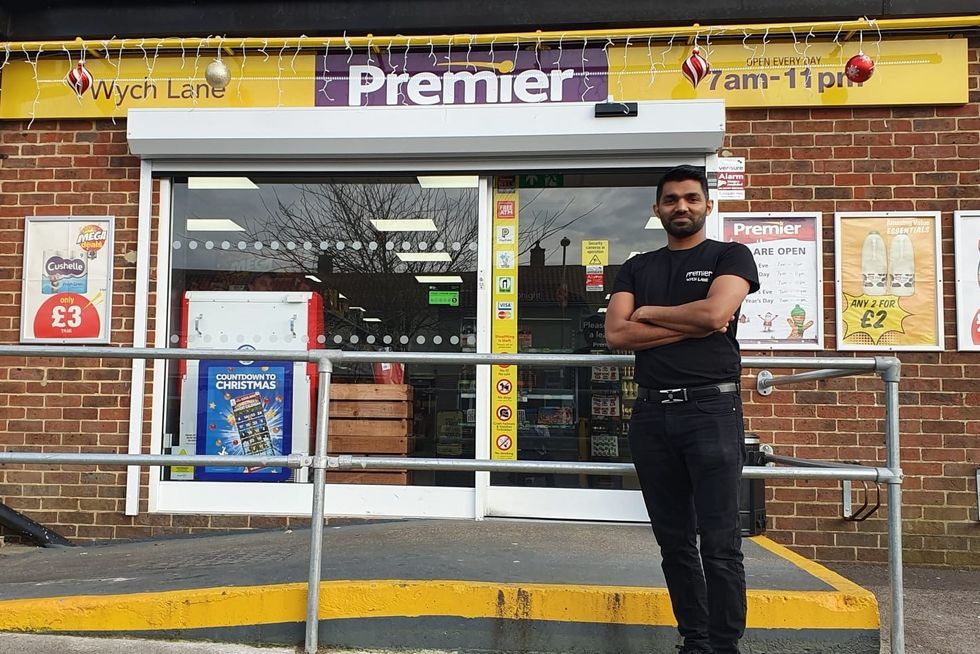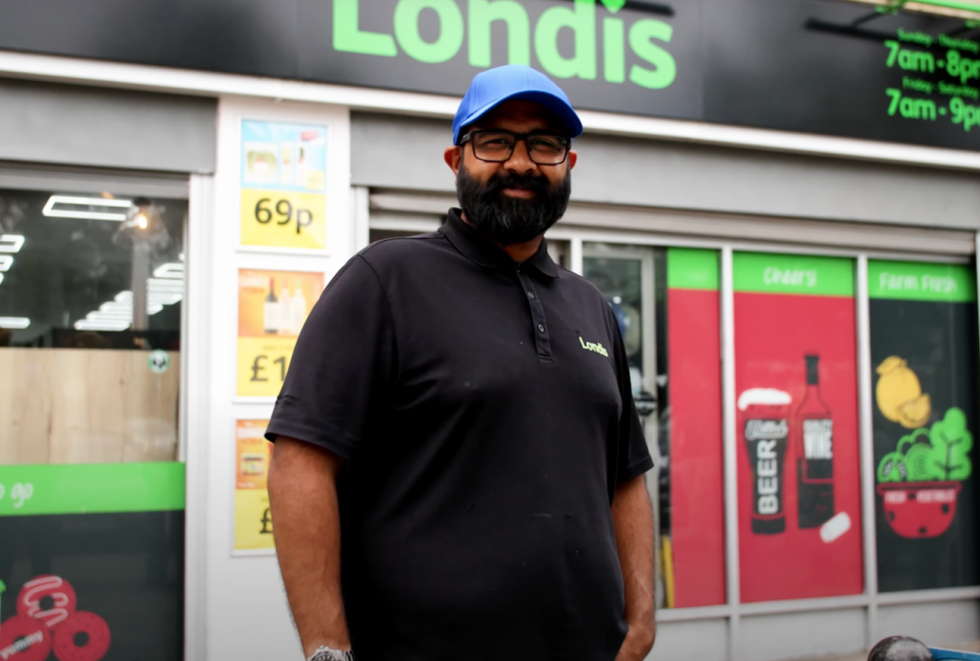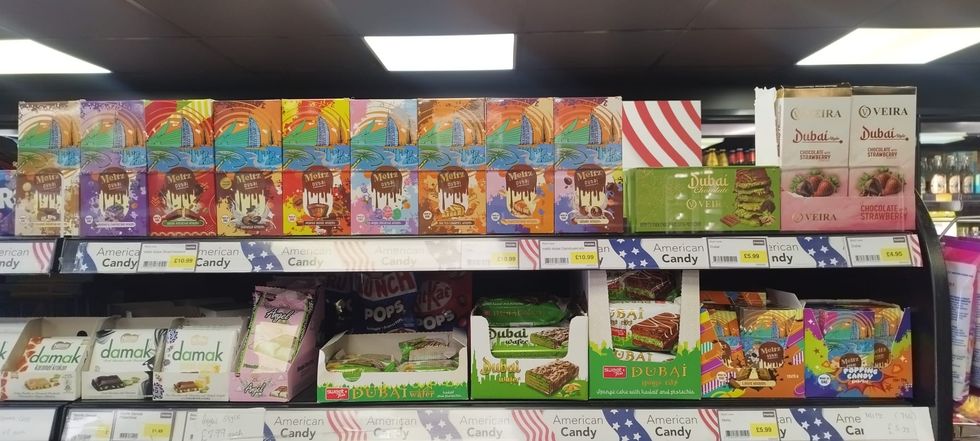- Social media viral food trends bring the possibility of added revenue in convenience stores
- Needs constant monitoring and extensive search for consistent suppliers
- Supermarkets proving to be slower in the adaptation, giving an edge to independent stores
TikTok and Instagram viral food trends are unlocking a fresh revenue stream for the convenience retail sector, giving independents a clear edge over supermarkets in the race to meet new demand.
There was a time when supermarkets dictated food trends, often borrowing cues from restaurants to recreate bestsellers for the masses. But that dynamic has shifted and this time, the power swing feels permanent.
Today, social media calls the shots, and the stores that respond fastest are the ones cashing in.
From matcha lattes to spicy Korean noodles to Viele Angel Hair Strawberry Chocolate and Squid Games energy drinks, shoppers’ cravings are now shaped online and sometimes overnight.
PRIME is a textbook example, a brand born from social buzz that grew into a retail phenomenon.
More recently, the “Dubai chocolate” bar, a pistachio-and-tahini treat inspired by Arab dessert knafeh, followed a similar trajectory. One TikTok video racked up 120 million views, sending demand surging with Brits desperate to get their hands on it.
While supermarkets scrambled to react, it was convenience stores that got there first.
For many independents, viral hits like these aren’t just hype. They rather represent a growing revenue model that taps into impulse and popular culture.
Hampshire-based retailer Imtiyaz Mamode cracked the code on viral products well before it became a trend.
Thanks to his unique stock comprising American confectionery, snacks and drinks, Premier Wynch Lane Gosport has been popular as “TikTok store” among the youngsters.
The nickname wasn’t part of a marketing plan; it began organically in 2020 when a customer requested a viral American snack. Mamode sourced it, stocked it, and hasn’t looked back since.
While initially the store’s rare American and Japanese range became a hit with young shoppers, soon enough, Mamode soon started tapping social media to find the popular products.
“One of the initial social media trending products that I started stocking was Twix Orange and that too during Covid,” Mamode told Asian Trader.
What began as an experiment in TikTok stocking has grown into a consistent revenue driver, with viral products now forming a core part of Mamode’s business model.

Explaining the process, Mamode said, "I usually wait out a bit to see how long the product is trending as sometimes it is just a passing fad and also because the prices are high initially. After the initial hype settles down, the prices also become more reasonable and so do the logistics.
“Only after my suppliers, whom I trust, are able to offer me a consistent supply, do I then get the stock and start displaying the product in the store as well as on my social media.”
For Mamode, trust and affordability are non-negotiable even amid the viral buzz.
“We never take advantage of the hype. I am happy with my 20 to 30 per cent margin; for me having a loyal customer base is more important. I can’t lose their trust,” Mamode told Asian Trader.
Across the UK, many savvy retailers are turning TikTok trends into a repeatable revenue stream, some even building entire store identities around it.
In Dartford, retailer Nishi Patel too is progressing brilliantly to make his store, Londis Bexley Park a destination store, one that speaks Gen Z’s language.
“I get the idea of what to stock next in this range through TikTok,” Patel explained. “I keep a close tab on what is trending and is being talked about most and try to be among the first few retailers to stock a viral product.”
Today, if it’s going viral on social media, chances are it’s already on the shelves at Londis Bexley, in return driving its footfall and lifting the sales.
“The decision making depends majorly on if many customers are asking for the product. Now that people know that we stock such a range, we often get DMs as well asking whether we have a particular range.
“All this help me gauge whether to stock the product or not.
“If there is a constant buzz and lots of queries, I usually buy 10 cases to start off with,” Patel said.
Not a very smooth ride
Keeping the social media trending products in convenience stores seems like a sure shot and shorter route to success, though the reality is that this road is much bumpier than it appears.
Supply chain challenges, pricing, and trend volatility make it a tricky balancing act.
Patel explained, “It’s a constant conversation with suppliers on what products are becoming trendy. One needs to constantly engage with suppliers to get the right range at the right time at the right price.
“The irony here is that when we try to get in there before to be the early ones to stock, at that point the products are more expensive.”
Zeroing on what to stock is one thing and finding a supplier which can offer the exact range consistently is a different ballgame altogether.
“Apart from price, consistency of stock supply is also important. I always try to get the stock from my regular suppliers.

“Else, I have to find a new supplier, start a new account, and have to have a minimum order. In such cases, one tends to buy more stock than required," Patel said. “It can be a real Catch-22 situation!”
Also, another key thing to be cautious about here is the fickle nature of the online world where trends collapse just as fast as they rise.
Sometimes, a viral product tends to remain popular for a long time while many other times, the popularity dies down in a week, leaving retailers with not-so-popular unsold stock.
Patel revealed, “To be on the safe side, I usually try not to be impulsive and wait to see how the trend is moving and how the buzz is behaving.
“Only after I am convinced that there are enough legs in the idea and there are lots of customers asking for the product on our Instagram and TikTok handles, only then I decide to stock the same.
“So far, we've been very lucky. There have not been many products that we have struggled with or taken any wrong decisions.”
Having become a pro at this genre of retail game, Mamode knows the pitfalls too well.
He echoes Patel’s sentiments, saying success with viral products takes control, not chaos.
"It’s not easy to get hold of the right suppliers easily. And then there are always chances of getting an oversupply,” he agreed.
With products like these there is a lot of ambiguity, so any retailer venturing into this area should keep in mind the expiry dates and UK regulations as well, warned Mamode.
“In the past, there was a product range which was in great demand. It came from Australia with just three months of expiry date. I ordered a large stock unknowingly.
“When it came, I had to drastically slash the prices to almost one-tenth to clear the stock well in time,” recalled Mamode.
“It’s a tightrope, to be honest. If I order too much, I might end up with unsold stock. If I don’t order enough, there’s a clear sales opportunity lost,” he said.
But not just a passing fad
Despite a few bumps, both retailers agree that when done right, this model of trend-led retail delivers returns that justify the risk.
Mamode is determined to further cement the store’s image in Hampshire and Leicester area to continue to maintain his store as a go-to destination store. The key is to have control on the pricing.
“I am very particular about not losing my customer base and make sure to provide them the best possible prices,” he said.
Both Patel and Mamode handle their store’s social media accounts themselves. Both in fact are also active content creators, often featuring in many of the store’s marketing videos.
Sensing the momentum, supermarkets are now investing in AI tools to monitor social chatter, recipe trends, and restaurant buzz.
What once took months in product development can now hit their shelves in just a few weeks.
But even as the mults speed up, its convenience retailers who hold the real edge. With leaner operations and fewer layers of bureaucracy, independents can make stocking decisions overnight, often being first to meet the demand triggered by viral hits.
Take the Dubai chocolate bar again, for instance. The TikTok phenomenon has recently inspired a wave of pistachio-laced spin-offs across the multiples.

Yet long before supermarket SKUs were ready, many savvy convenience stores had already jumped in, sourcing trending variants through specialist wholesalers and cashing in on the craze in real time.
Being independent retailers and thus independent decision makers too, Patel and Mamode feel that they have a “clear cut edge over supermarkets” when it comes to stocking viral product ranges.
“We don't have to think and contemplate like supermarkets corporate setup. They get embroiled in approvals, change of planograms, supplier agreements, etc,” Mamode said.
Patel agrees, noting, “Supermarkets near me only started stocking Dubai Chocolate a couple of months ago while I have been selling it since September last year.
“We managed to get on this viral trend very early through our suppliers. Earlier, it wasn't cheap because it was something new. Eventually, I managed to get in touch with someone who was making them in London,” he said.
By the time Dubai Chocolates started becoming full blown viral, Patel had already established his store as the go-to destination for the same – and that too at reasonable prices.
Despite the challenges and unpredictable nature of such ranges, retailers who have tasted success, remain determined to stand their ground.
Patel said, “Gen Z and Gen Alpha aren’t much swayed by TV anymore. They have their own language and resonate with things that they see on social media. FOMO [fear of missing out] is high.
“I envision my store as a destination store, a place where young shoppers know they will find exactly what they’re looking for.”
It seems like viral products aren’t just a passing craze.
They are influencing convenience retail to some extent, giving birth to a dynamic new model that rewards those who move fast and think local.

![Going viral, cashing in: Independent retailers ride viral wave to success [Exclusive]](https://www.asiantrader.biz/media-library/image.jpg?id=61125392&width=1200&height=800&quality=60&coordinates=0%2C33%2C0%2C34)
